Richard Henry Pratt requests the Commissioner of Indian Affairs reconsider its decision to not allow him personally to go select students at the Navajo and Sioux Agencies. Pratt believes that none of his employees have the requisite knowledge to successfully select students from the agencies.
1882
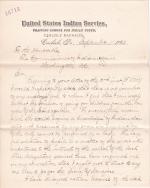
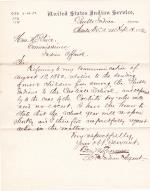
Benjamin M. Thomas, U.S. Indian Agent for the Pueblo Agency, refers the Commissioner of Indian Affairs to a prior letter to which he asks to send more students to the Carlisle Indian School especially a Cochiti student.
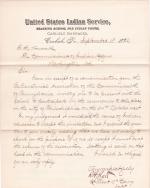
Richard Henry Pratt informs the Commissioner of Indian Affairs that the he and the Carlisle Indian School have been invited to attend and participate at the Bi-Centennial celebration in Philadelphia, Pennsylvania on October 24, 1882. Pratt recommends accepting the invitation if the Bi-Centennial Association pays the costs.
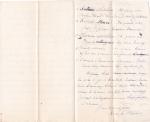
Alice C. Fletcher indicates that she has five Omaha pupils in her charge and desires that they be given permission to attend the Carlisle Indian School.
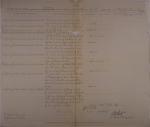
Estimate of funds for the fourth quarter of 1882 amounting to $8,682.25 for support of the school, and an additional $4,976.25 for employee wages.
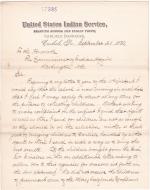
Richard Henry Pratt provides the Commissioner of Indian Affairs the total and per capita expenses for educating Pine Ridge and Rosebud students as well as Sisseton Agency students.
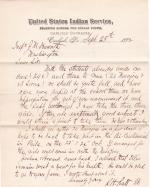
Richard Henry Pratt notes that the school is already ten percent over its appropriation in terms of students but he would be willing to accept three Ottawa Nation girls if the J. M. Haworth recommends they be brought to Carlisle. Pratt writes that when he goes to pick up 20 Navajo students he can bring back the Ottawa girls as well.
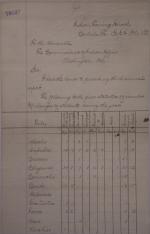
Third annual report of the Carlisle Indian School providing statistics of the number of students from various nations during the school year. Pratt notes that the outing system has been highly successful and comments on the progress of the first group of students from the Sioux Nation along with other groups of students from the Cheyenne,…
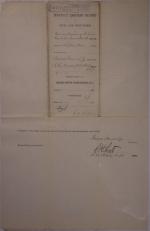
Thomas Stewart Jr., school physician, compiles the monthly sanitary report for September 1882.
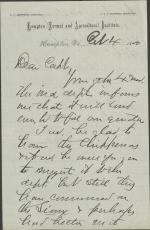
Samuel Chapman Armstrong of the Hampton Institute writes to Richard Henry Pratt discussing enrollment quotas as well as the Chippewa and Sioux.
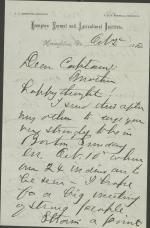
Samuel Chapman Armstrong of the Hampton Institute writes to Richard Henry Pratt, urging him to attend a large meeting in Boston where 24 Hampton students would be present, to convince the public of the value of Indian education.
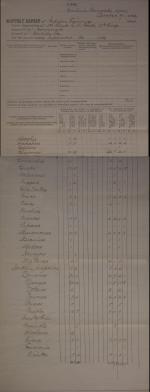
Richard Henry Pratt submits this Monthly School Report for September 1882.
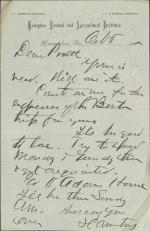
Samuel Chapman Armstrong of the Hampton Institute writes to Richard Henry Pratt discussing logistics of a trip to Boston.
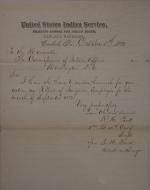
Richard H. Pratt submits a report that lists irregular employees who worked at the school during September 1882. The report includes details on compensation, position titles, race, and the number of days worked during that month.
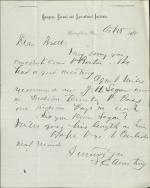
Samuel Chapman Armstrong of the Hampton Institute writes to Richard Henry Pratt regretting that Pratt was unable to come to Boston for a meeting, and asks for information on J. H. Segar, an individual recommended to Armstrong by Agent Miles to oversee male students' work at Hampton.
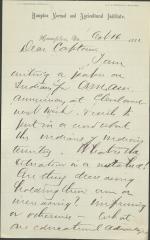
Samuel Chapman Armstrong of the Hampton Institute writes to Richard Henry Pratt asking for information about Indian Territory and its peoples to include in a paper for the American Missionary Association meeting in Cleveland.
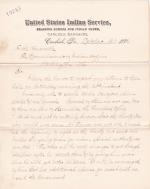
Richard Henry Pratt reports that he returned from his trip to recruit Navajo students. He notes that he only brought back 12 Navajo students rather than the allotted 20.
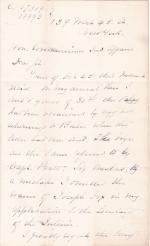
Alice C. Fletcher requests permission to enroll six Omaha students at the Carlisle Indian School. Fletcher recounts she had been fundraising to secure funds for their education and had nearly succeeded.
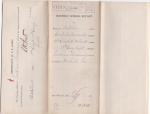
Richard H. Pratt submits this Monthly School Report for October 1882.
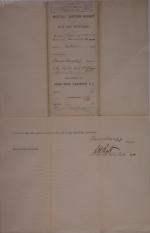
Thomas Stewarts Jr, school physician compiles the monthly sanitary report for October 1882.
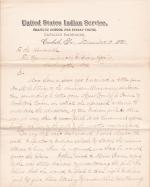
Richard Henry Pratt recommends being allowed to send eight small girls to be educated by Emily J. Bowen of Woodstock, Connecticut.
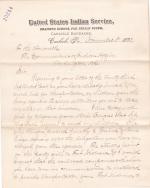
Richard Henry Pratt informs the Commissioner of Indian Affairs that he has received word that Sitting Bull refuses to send any children to Carlisle. As a result he has directed his representative to go directly to Rosebud or Pine Ridge to bring back students. He ended by saying that if there are more students desiring to come from Rosebud or…
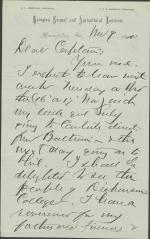
Samuel Chapman Armstrong of the Hampton Institute writes to Richard Henry Pratt with trip logistics for Armstrong's visit to Carlisle, including an expressed desire to meet with supporters at Dickinson College.
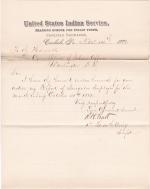
Richard H. Pratt submits a report that lists irregular employees who worked at the school during October 1882. The report includes details on compensation, position titles, race, and the number of days worked during that month.
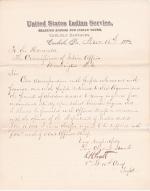
Richard Henry Pratt requests $50 worth of 3 cent stamps in order for the Carlisle Indian School to correspond with outing patrons, returned students, parents, and official inquiries.
